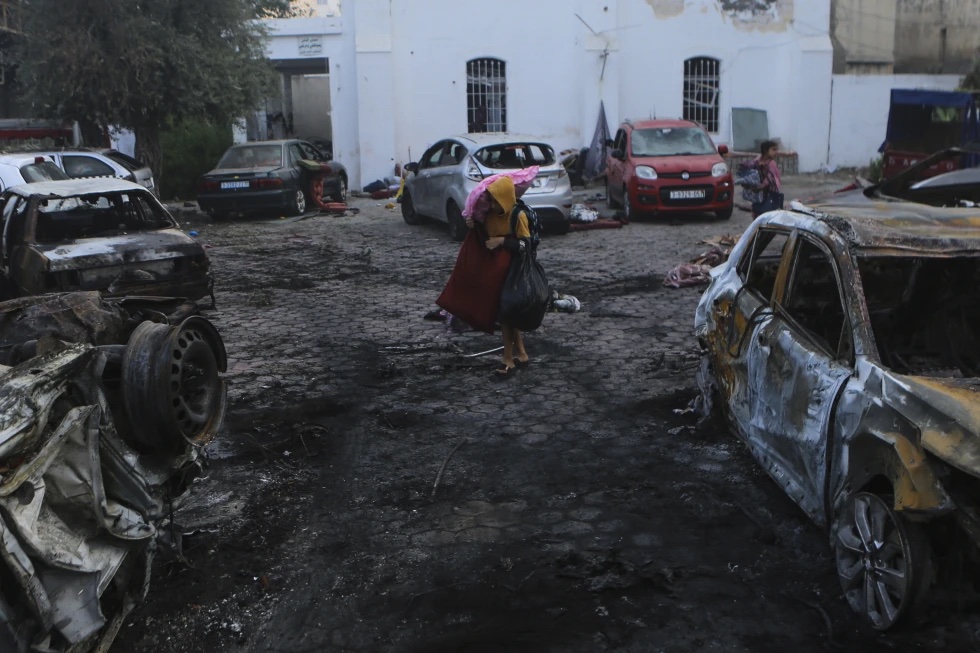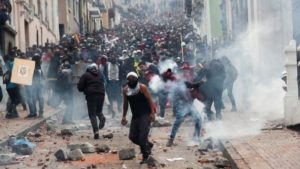
Platforms like X, Reddit, and Facebook have become the front lines of a battle to control the narrative surrounding the conflict between Israel and Palestine. On October 17, an explosion at Al Ahli Arab hospital killed over five hundred Palestinians in the midst of growing tensions between the two nations, shocking the international community.
While there was initially little concrete evidence to identify the aggressor, initial reporting cited the cause for the explosion to be an airstrike from Israel. Screenshots of a fake post from the Israel Defense Forces (IDF) taking ownership for the attack quickly spread on the pages of pro-Palestine activists. The IDF released a statement denying involvement in the incident and sourcing the cause of the explosion to be a misfired rocket by Palestinian militant groups, which United States intelligence backed up on Wednesday. Many on social media, however, still believe Israel was the perpetrator. A New York Times visual analysis of the explosion also cast doubt on Israel’s allegations.
This incident comes only weeks after a similar frenzy was sparked by Israeli Prime Minister Benjamin Netanyahu when he indicated that Hamas had beheaded Israeli infants. The story was ostensibly confirmed by the IDF and circulated in Israeli media for weeks despite them releasing no evidence.
Though disinformation has been employed by supporters of both the IDF and Palestine to garner political momentum, their efforts take vastly different forms. Hamas has no official presence on mainstream social media platforms like Facebook, Instagram, or X resorting instead to the Telegram channel Gaza Now as the only official mouth for the organization. On more popular platforms, Hamas used alternate accounts to rally support. Research recently connected sixty seven X accounts with a coordinated Palestinian disinformation campaign. Additionally, foreign entities from Iran and China, as identified by Google’s Mandiant intelligence division, have been involved in a series of cyber influence campaigns. They have criticized the responses from the American and Israeli governments to the October 7 attacks and have also spread pro-Hamas sentiment among Egyptians through mainstream social media channels.
One edge that the Israeli campaign has over their enemy is their access to censorship. Removal of pro-Palestinian content without explanation has been a consistent issue in recent weeks. One Palestinian Instagram user reported that a post displaying their building before it had been hit by Israeli missiles was taken off the site for containing “hate speech or symbols.” Other users have also reported similar experiences of post removal and shadowbanning.
Many of these removals can be attributed to the Israeli government’s initiatives to monitor social media posts. Unit 8200 of The Israel Defense Corps is an intelligence agency similar in function to The National Security Agency (NSA) of The United States. It is the largest unit of The Israel Defense Corps and the second largest intelligence agency in the world, second only to The NSA. Over the past two decades, one of the primary functions of the organization has been to flag social media posts by Palestinian users that conflict with Israel’s narrative.
According to a 2018 report by Israel’s State Attorney Office, compliance rate with flaggings by Unit 8200 is 90 percent across all platforms, a rate much higher than for regular users. Lacking the scale and institutional legitimacy of the IDF, Palestinian social media campaigns cannot abuse the flagging system in the same way.
Each day that the conflict rages on, the web of information on social media becomes more tangled. Social media companies’ secrecy about governments’ use of their platforms creates an opaque wall between users and the true source of their information. Facebook’s self governing body, the Oversight Board, recommended in 2021 that Facebook distinguish between posts that were removed because of violations of company policy and violations of local law. Social media’s role as the public forum for discourse is under threat by the influence of state and organizational actors. To prevent platforms from devolving into propaganda during times of political and humanitarian crisis, it is imperative that social media companies be more transparent about what actors are influencing their platforms.



